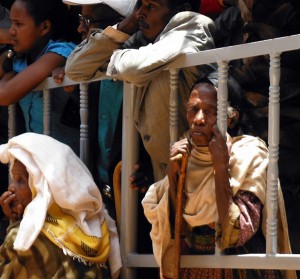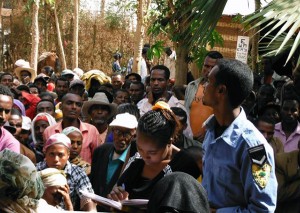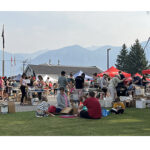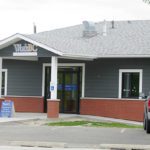Home »

Dembi Dolo saga changed more than a few lives
It may sound counter-intuitive, but aid programs to Africa are often criticized as doing more harm than good. In her new book, ‘Dead Aid,’ Dambisa Moyo, a Zambian-born economist argues aid is killing Africa by creating a culture of dependency and laziness.
Moyo says this is particularly true of the “celebrity aid” model led by such international stars as Bob Geldof and Bono and their well-intentioned supporters. Too bad Moyo wasn’t in Dembi Dolo, Ethiopia in March and saw what an inspired group of Rotarians did in one hectic week as they coordinated cataract eye surgery for almost 200 rural Ethiopians and treated literally hundreds more for a variety of eye ailments at a site close to the eastern edge of the Sahara Desert.
 No big stars in this program. Just a dedicated group of Rotary volunteers mostly from the Tri-Cities, Washington, area and one volunteer (this writer) from the Sunrise Rotary Club of Cranbrook, who paid their own way to Ethiopia in order to do what they could to help several hundred proud, but dirt-poor farmers and villagers regain their vision and their pride.
No big stars in this program. Just a dedicated group of Rotary volunteers mostly from the Tri-Cities, Washington, area and one volunteer (this writer) from the Sunrise Rotary Club of Cranbrook, who paid their own way to Ethiopia in order to do what they could to help several hundred proud, but dirt-poor farmers and villagers regain their vision and their pride.
And each one of those gritty residents of the Dembi Dolo region arrived at the Abba Philipos Catholic Church Eye Clinic with a handful of Ethiopian currency (Birr) rolled up in their hand and they paid what they could to be treated with their heads held high.
Dr. James Guzek, an ophthalmologist at the Pacific Cataract and Laser Institute (PCLI) in Richland, says his form of outreach stems from his deep Catholic faith and adherence to the Rotary mission of “service above self.” And it’s absolutely crucial to respect the people you serve, he says. “Paying something, even 15 Birr, (about a dollar) allows people to retain their dignity while perhaps offering the prospect that one day eye care providers just might be able to support themselves treating blind people in such remote locations.”
Guzek, who has now conducted five “eye camps” in Dembi Dolo and is planning another next year, says he makes a good salary and uses it to pay the administrative costs related to fund-raising in the U.S. Support on the ground in Ethiopia comes from the Daughters of Charity sisters who take nothing for their work. His Rotary club, along with other clubs both inside and outside the Tri-cities, paid for all the equipment used in the eye operating room in Dembi Dolo.
“There’s no overhead. One hundred per cent of any money that gets donated goes to Ethiopia to help with the work there, making blind people see. We have a very efficient machine on the ground now that takes blind people and gives them back their sight and their lives. We only need to keep feeding it.”
With his Ethiopian ophthalmologist-partner, Dr. Samuel Bora of Addis Ababa, Guzek says he has a long-term plan to grow the Dembi Dolo eye camps into a regional service that will provide eye care to Dembi and other towns in the area on a regular basis. Each month, Dr. Bora flies into the bush for two to three weeks to provide surgical eye care. Dr. Bora’s salary is paid for by Guzek and Dr. Larry Thomas, another American doctor.
 Dr. Bora says eye care is extremely limited under the Ethiopian public health plan. Those who cannot afford to travel for specialized services such as cataract surgery do without in a country where the average monthly wage is only $23 US, according to a recent article in the Economist Magazine. “The government hasn’t yet integrated eye care as part of the regular health system,” says Dr. Bora.
Dr. Bora says eye care is extremely limited under the Ethiopian public health plan. Those who cannot afford to travel for specialized services such as cataract surgery do without in a country where the average monthly wage is only $23 US, according to a recent article in the Economist Magazine. “The government hasn’t yet integrated eye care as part of the regular health system,” says Dr. Bora.
This may come in time, but in the meantime, Guzek’s Richland Sunrise Rotary Club is paying for Mitiku Asefs, an Ophthalmic Medical Assistant (OMA) to receive special training to become a field ophthalmologist by 2015. Their hope is that ‘Dr. Mitiku’ can be turned into another superb high-volume cataract surgeon. This is just one of the unique ways in which Dr. Guzek is helping Ethiopia cope with its shortage of trained specialists.
Semi-retired optometrist, Dr. Gerald Wodlti, one of the volunteers at the camp, says his most enduring memory of the trip will be “the need that just never ends.” Paul Zimmerman, a retired communications engineer and former US Navy Seal says he won’t forget the team. “What I liked the most was the extreme camaraderie. Everyone was on the same page of the mission all the time. You don’t see that much anymore.”
Lorraine Cooper, Kennewick School District Communications Director who goes by the sobriquet “L,” says she’s often asked if Dembi Dolo was a life changing experience for her. “My reply always is it was for the people we helped.” Which leads to the obvious question; when you change someone else’s life, how can you avoid changing your own?

– Gerry Warner is a retired journalist and Cranbrook City Councillor who recently returned from a Rotary eye camp in Ethiopia.








